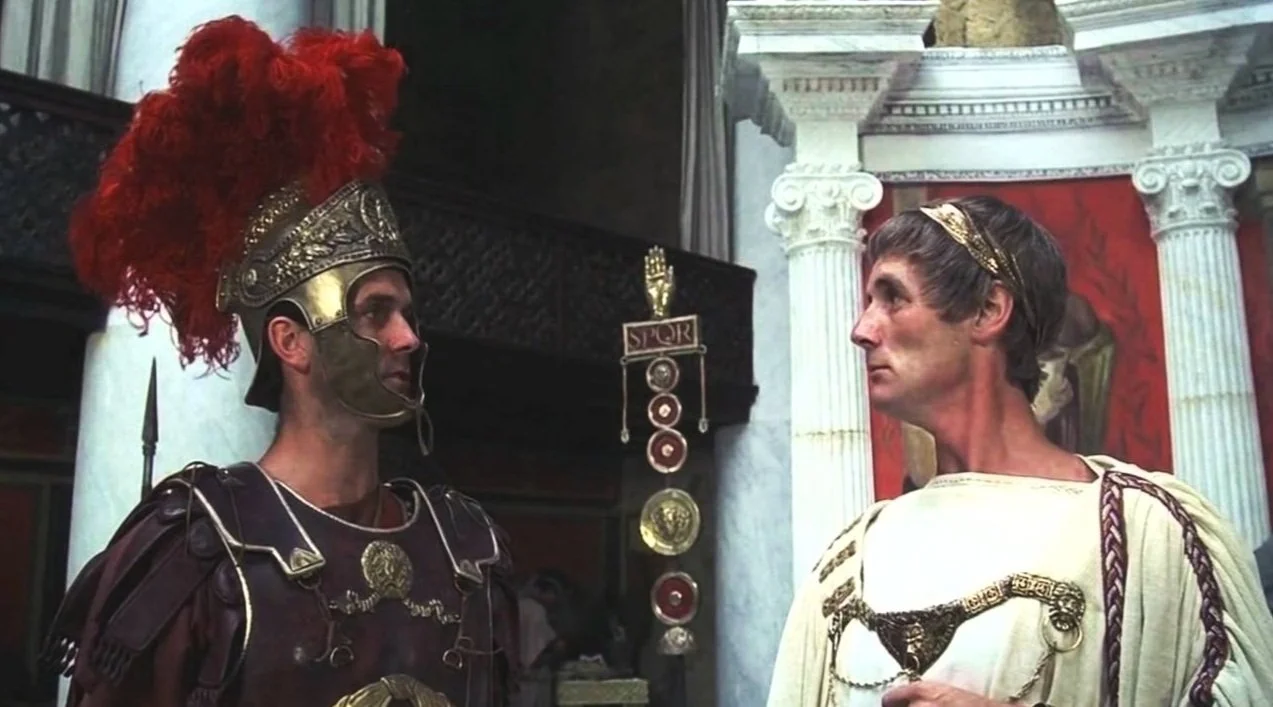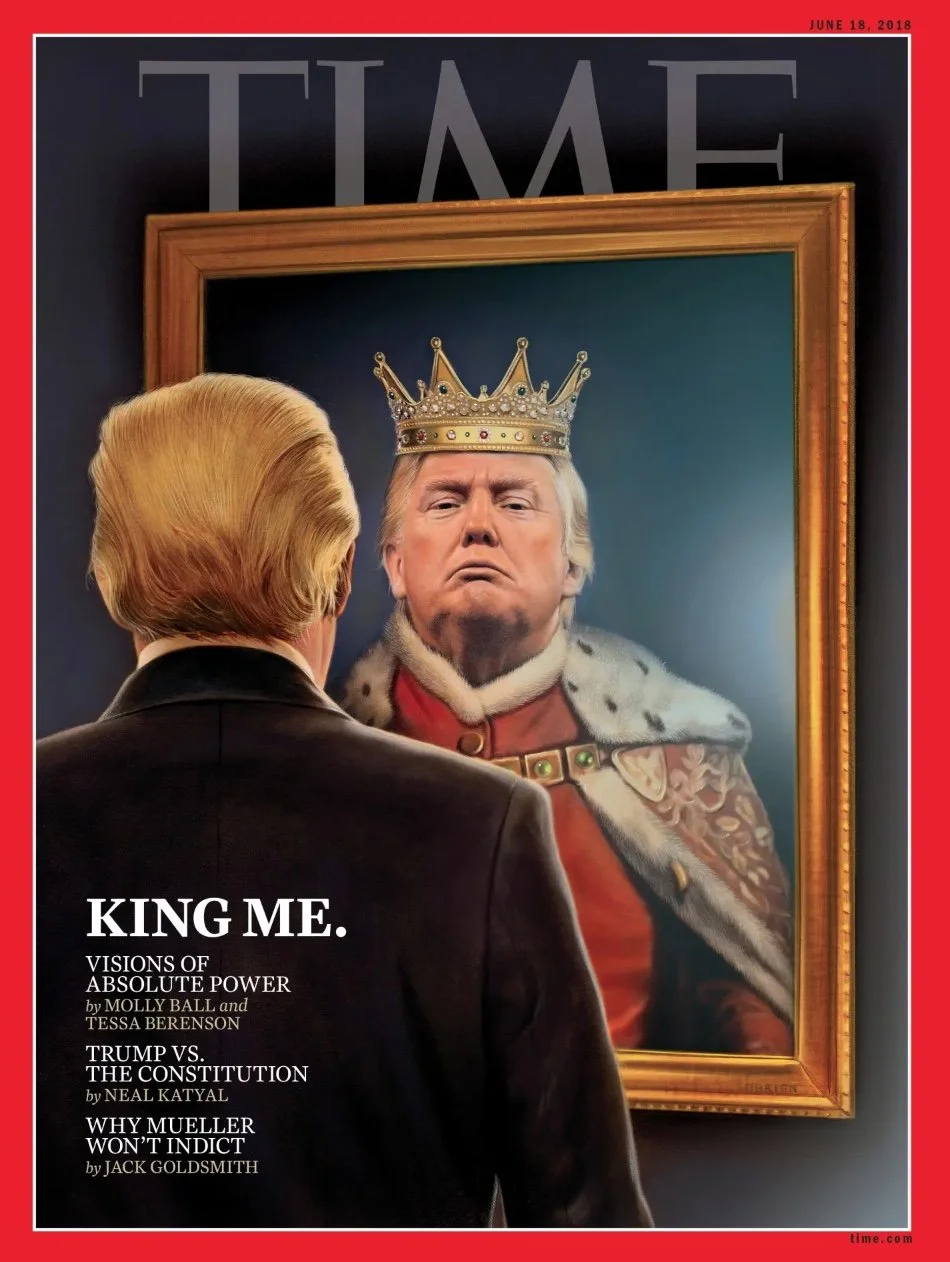By The Landlord
"Rome has grown since its humble beginnings that it is now overwhelmed by its own greatness.” – Titus Livius
“All things atrocious and shameless flock from all parts to Rome.” – Tacitus
“Veni, Vidi, Vici (I came, I saw, I conquered)” – Julius Caesar
“Cui bono? (Who benefits?)” – Cicero
“Give them bread and circuses and they will never revolt.” – Juvenal
“Everything we hear is an opinion, not a fact. Everything we see is a perspective, not the truth.” - Marcus Aurelius, Meditations
‘’If you want a rainbow, you have to deal with the rain.’’ – Augustus
“Say not always what you know, but always know what you say.’’ - Claudius
‘’Our great mistake is to try to exact from each person virtues which he does not possess, and to neglect the cultivation of those which he has.’’ – Hadrian
“When thou art at Rome, do as they do at Rome.” – Miguel de Cervantes
“Revenge is profitable, gratitude is expensive.” – Edward Gibbon, The Decline and Fall of the Roman Empire
“Fullones ululamque cano, non arma virumque.
I sing of cloth-launderers and an owl, not arms and a man.” – Roman graffiti
Imagine an empire so vast, so rich, so powerful, so influential, that it permanently changes the culture, technology and daily lives of millions of people across the world - not merely through invasion, control and commerce, but language and thought. And also one in which the leader of that empire becomes so dizzy and drunk with that power and perceived popularity, so enamoured with his own image as well as insecure within it, he declares absurd policy and perversity in the same thoughtless breath, like a shit-stream of cash-consciousness in some reality TV show, all the while unchallenged by those around him who are distracted by possible consequences and personal interest. That is, until things really begin to fall apart. Sounds familiar ...?
You could say this has happened, many times, at least within geographical limits during various reigns of the Ancient Chinese Empire, and most certainly with the British Empire, and now most definitely with the crumbling, chaotic American one, with a leader perceiving himself in virtual emperor's garlands, eyeing land opportunity like candy, while discarding and destroying entire nations and communities as if they were the wrappers. His modern-day virtual Praetorian guard tip-toe around him, equally paranoid, and weigh up whether to allow this pantomime to continue, and whether this figure-head serves their interests too.
“It's never happened in history that every region in the world could affect every other region simultaneously. The Roman Empire and the Chinese Empire didn't know much about each other and had no means of interacting. Now we have every continent able to reach every other,” declared US foreign secretary Henry Kissinger in the 1970s.
“But are we like late Rome, infatuated with past glories, ruled by a complacent, greedy elite, and hopelessly powerless to respond to changing conditions?" chips in the author Camille Paglia.
And here's James Buchan: "The world survived the fall of the Roman empire and will no doubt outlast our own so much more splendid civilisation."
So this week, let's turn our attention to the many colourful stories and parallels of perhaps still the most pervasive and influential empire in history, one that gave us so many of the trappings of modern life, first set in all sorts of stone and other materials around 2,000 years ago, from plumbing to roads to structures of perceived democracy, back-stabbing corruption, public relations and colossal entertainment for the masses, before it all eventually collapsed like a pile of sugar. History always repeats itself.
Before it had an emperor at its head, Rome was an expanding empire for at least three centuries BC, moving across much of Europe, western Asia and Africa, and a Republic ruled by an elected Senate, magistrates and consuls. Then came Julius Caesar, a conquering military businessman and entertainer who then declared himself king, aka dictator perpetuo, then got his comeuppance in 44BC at the sharp end of a clutch of consul knives. If you live by the sword ... etc.
Augustus, originally Octavian and JC's adopted son, and rival to the other Marc Antony, became the first official emperor, and established a setup that would last for another five centuries, even though he met his own untimely end. “I found Rome a city of bricks and left it a city of marble,” he declared, establishing also the famous Praetorian Guard, whose primary job was always to protect the empire, but later on variously killed, or allowed many emperors to be murdered, and sometimes chose successors based on who offered them the most money. It was a system that pervaded until the Empire's big collapse in 476 AD, although you could still count the Roman eastern empire as lasting until the fall of Constantinople in 1453. It still has many modern echoes.
“The tender respect of Augustus for a free constitution which he had destroyed, can only be explained by an attentive consideration of the character of that subtle tyrant. A cool head, an unfeeling heart, and a cowardly disposition, prompted him, at the age of nineteen, to assume the mask of hypocrisy, which he never afterwards laid aside. With the same hand, and probably with the same temper, he signed the proscription of Cicero, and the pardon of Cinna. His virtues, and even his vices, were artificial; and according to the various dictates of his interest, he was at first the enemy, and at last the father, of the Roman world,” describes Edward Gibbon of that entire political situation, very reminiscient again for today and how politics operates, and taken from his famous multi-volumed history The Decline and Fall of the Roman Empire, published between 1776 and 1789.
But one of my favourite depictions of the Roman Empire is the 1970s BBC series, I, Claudius, a fabulously acted, very theatrical depiction of the ups and downs of the period. In this clip Augustus, played by an unusually restrained Brian Blessed, realises that absolutely everyone has slept with his daughter, and we see the growing disappointment and paranoia poisoning his soul:
So then, alongside Roman invasions, wars, and all the enormous changes they brought, there's also many potential song lyrics that could also refer to famous Romans, empires to authors and to all they got up to, the great, wise and sometimes even good, as well as the bad, mad and almost always dangerous to know. There were periods of stability and growth, particularly under the so-called five good emperors Nerva, Trajan, Hadrian, Antoninus Pius, and Marcus Aurelius over an 84-year period, when as Gibbon describes, under this “kingdom of gold” the Roman Empire “was governed by absolute power under the guidance of wisdom and virtue.”
It wouldn't last of course, as the very next emperor was Commodus, son of Marcus Aurelius, who descended into complete megalomania, declaring himself a god and dressing like Hercules. At the Colosseum one of his favourite hobbies was pretending to be a fabulous gladiator, although all of his opponents were heavily drugged. He particularly liked hunting down ostriches brought from Africa, and in one games alone chopped off the heads of 100 of the poor birds, at one point picking up a head, and shaking it at the watching members of Senate as if to indicate that this is what could happen to them. He laughed madly and they all had to laugh too.
Caligula was another very colourful, odious, highly insecure emperor who was particularly unhinged, had some some incestuous inclinations, and allegedly even planned to bring in his horse as a member of the Senate. This couldn’t last of course, as especially as he had no military prowess. The inevitable plot ensues, and again from that TV series, featuring John Hurt, here’s his infamous end, and in the grisly aftermath and power vacuum, the rather comical, random way the Praetorian Guards discover the stuttering Claudius (Derek Jacobi) behind a curtain, choose him as successor.
Ironically though, the unlikely Claudius became one of the empire’s most successful emperors. He even oversaw the Roman invasion of Britain, and therefore made a permanent effect on this land, and consequently the rest of the world.
“Rome - the city of visible history, where the past of a whole hemisphere seems moving in funeral procession with strange ancestral images and trophies gathered from afar,” wrote George Eliot, and this subject is a vast and varied as indicated. Your song suggestions can touch on anything related to the Roman Empire, from gladiators to gods, togas to street names, emperors to orgies, invasions to inventions. There’s much to explore and to to uncover and while there are blockbusting TV series and films aplenty including that groundbreaking HBO series, Rome:
… let’s leave it all on a silly note, and following last week’s salty topic that was a life of brine, a scene that always leaves me in sniggering stitches, with this particular Michael Palin performance in Monty Python’s Life of Brian:
So then, citizens of the Bar, I hand you over to this week’s garlanded emperor of aural annals and record, Marco den Ouden! Place your song suggestions on the senate steps in comments below - deadline at UK time 11pm on Monday, for consul and possibly inclusion into playlists published next week.
“Experience is the teacher of all things’’ – Julius Caesar
“Every new beginning comes from some other beginning's end’’ – Seneca
“It is better to learn late than never’’ – Publilius Sysru
“All wish to possess knowledge, but few, comparatively speaking, are willing to pay the price’’ – Juvenal
“Your life is what your thoughts make it" – Marcus Aurelius
Dulcisonium reficit triistia corda melos? Sweet song refreshes sad hearts.
New to comment? It is quick and easy. You just need to login to Disqus once. All is explained in About/FAQs ...
Fancy a turn behind the pumps at The Song Bar? Care to choose a playlist from songs nominated and write something about it? Then feel free to contact The Song Bar here, or try the usual email address. Also please follow us social media: Song Bar Twitter, Song Bar Facebook. Song Bar YouTube, and Song Bar Instagram. Please subscribe, follow and share.
Song Bar is non-profit and is simply about sharing great music. We don’t do clickbait or advertisements. Please make any donation to help keep the Bar running.


